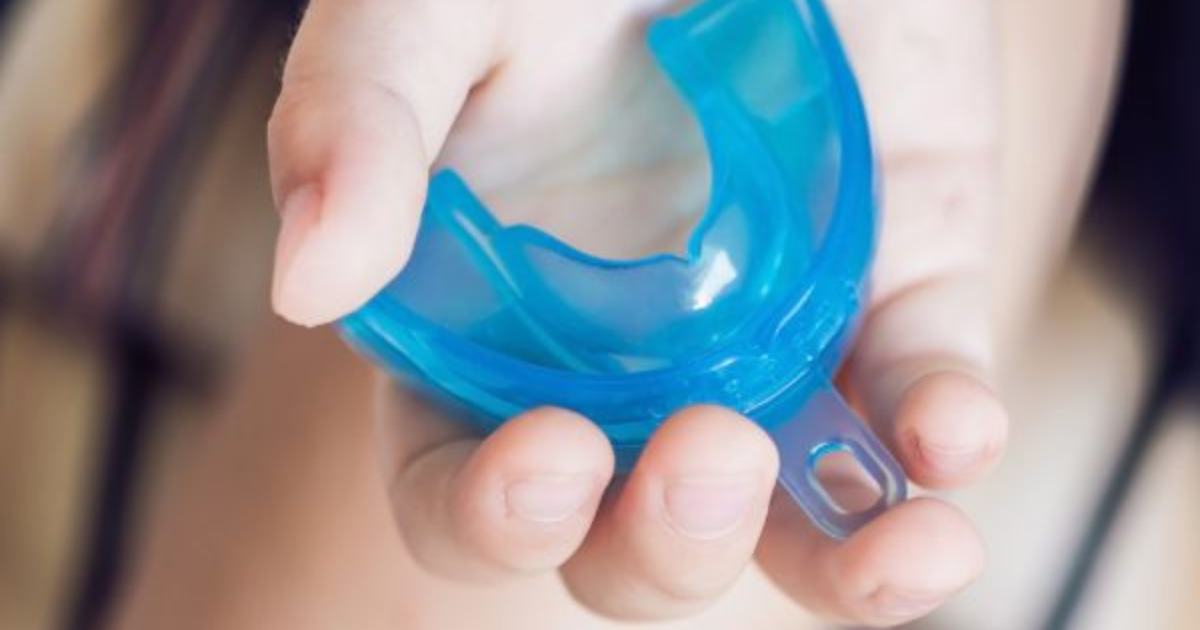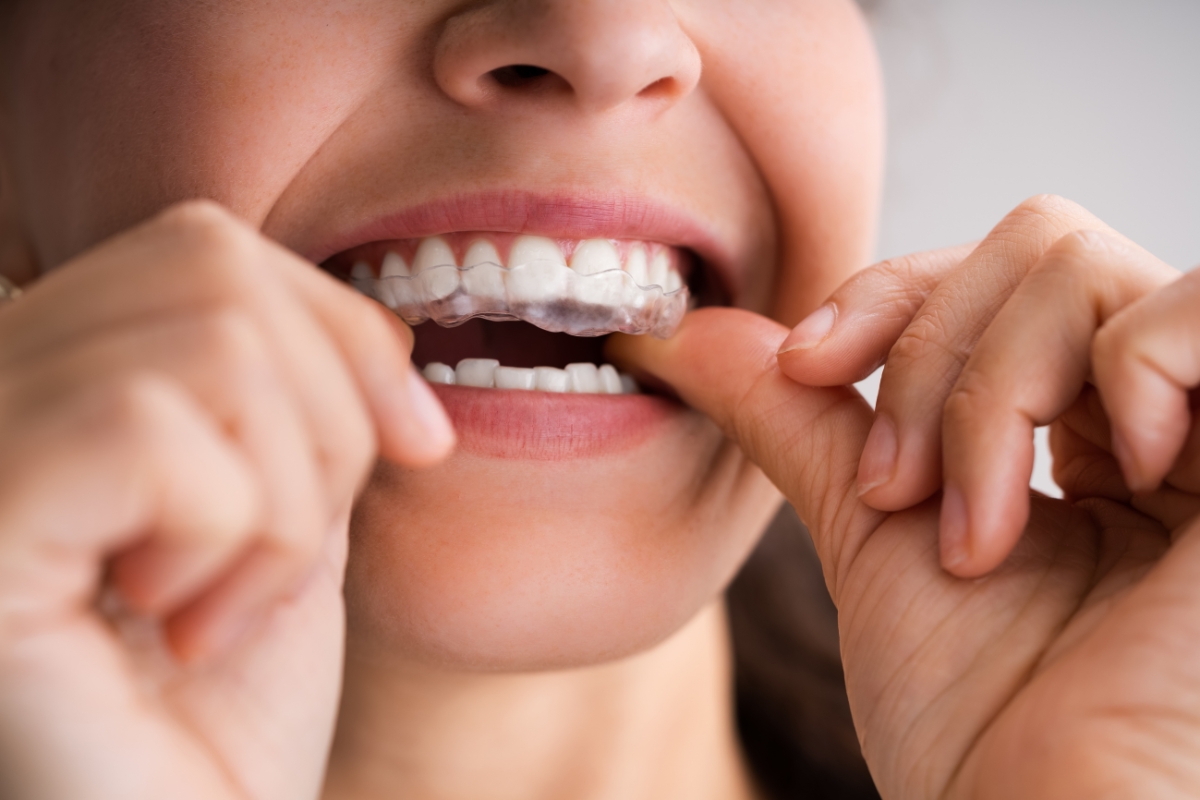8092 Edwin Raynor Blvd # D, Pasadena, MD 21122

If you’ve ever woken up with a sore jaw or frequent headaches, you might wonder if nightguards could be the solution to preventing TMJ issues.
Temporomandibular Joint Disorder (TMJ) affects many people, causing discomfort and pain that disrupts daily life.
But can something as simple as a nightguard really make a difference?
In this blog, we’ll explore how nightguards work, their role in managing TMJ symptoms, and whether they are a reliable preventive measure. Understanding the connection between nightguards and TMJ can help you make informed decisions about your oral health.
Let’s dive into the details and see if a nightguard is what you need to protect your jaw and overall well-being.
Understanding TMJ: What Causes It?
Temporomandibular Joint Disorder (TMJ) can develop from various factors, and understanding these is key to preventing or managing the condition. TMJ often arises from issues like:
- Misaligned teeth: Improper bite can put undue stress on the jaw joint.
- Bruxism (teeth grinding): Grinding your teeth, especially at night, is a major cause of TMJ.
- Arthritis: Inflammation in the joint can lead to TMJ disorders.
- Injury: Trauma to the jaw or head can trigger TMJ problems.
- Stress: High-stress levels can cause muscle tension, leading to clenching or grinding, which strains the jaw joint.
TMJ symptoms include jaw pain, headaches, earaches, and even clicking or popping sounds when opening or closing the mouth. Grinding your teeth at night, often unknowingly, is a significant contributor to TMJ. This constant pressure on the jaw can wear down the joint, leading to discomfort and pain.
Understanding what causes TMJ is the first step toward preventing it. For those prone to grinding or experiencing early signs of TMJ, exploring options like nightguards can be an effective preventive measure.
How Nightguards Work: A Simple Yet Effective Solution
Nightguards are a simple yet powerful solution to prevent TMJ symptoms. But how exactly do they work? Nightguards are custom-fitted devices worn over your teeth while you sleep. Their primary function is to act as a barrier between your upper and lower teeth, which helps in:
- Reducing the damage from grinding: Nightguards absorb the impact of teeth grinding, protecting both the teeth and the jaw joint.
- Alleviating jaw pressure: By providing a cushion, nightguards reduce the strain on the jaw muscles and joints.
- Stabilizing the jaw: A nightguard helps keep the jaw in a neutral position, minimizing joint stress.
These benefits make nightguards particularly effective for those whose TMJ issues stem from bruxism. Additionally, wearing a nightguard can improve sleep quality by reducing discomfort and preventing headaches or jaw pain upon waking.
For residents needing nightguards in Pasadena, MD, a reputable local dentist can offer custom-fit solutions tailored to your unique bite, ensuring comfort and effectiveness. A well-fitted nightguard not only protects your teeth but also plays a crucial role in maintaining your overall oral health.
Nightguards vs. Other TMJ Treatments: What’s Best for You?
When dealing with TMJ, you have several treatment options, and nightguards are often the first line of defense. However, how do they compare to other treatments?
- Nightguards: Non-invasive and easy to use, nightguards are effective for TMJ caused by bruxism. They prevent grinding and alleviate symptoms.
- Physical therapy: For TMJ caused by muscle tension or misalignment, physical therapy can help strengthen jaw muscles and reduce pain.
- Medication: Pain relievers and anti-inflammatory drugs can offer temporary relief but don’t address the underlying cause.
- Surgery: In severe cases, surgical intervention might be necessary to correct structural issues within the joint.
Nightguards are often the preferred choice because they are non-invasive and can be easily integrated into your nightly routine. However, if your TMJ is due to a more complex issue like arthritis or jaw misalignment, additional treatments may be required. In these cases, consulting with a specialist is crucial to determine the best course of action.
Customized TMJ treatment can provide a comprehensive approach, combining nightguards with other therapies to address each patient’s specific needs effectively.
The Importance of Custom-Fit: Why Generic Guards Won’t Cut It
You might be tempted to buy a nightguard off the shelf, but custom-fitted nightguards offer significant advantages. Here’s why a custom fit matters:
- Personalized fit: A nightguard made specifically for your mouth considers your unique bite pattern and jaw alignment, ensuring better comfort and protection.
- Stays in place: Custom nightguards are designed to fit snugly, reducing the risk of shifting during the night, which can cause more harm than good.
- Enhanced protection: Generic guards can be bulky and uncomfortable, often failing to prevent grinding effectively. In some cases, they may even worsen TMJ symptoms by causing additional strain.
While over-the-counter guards are cheaper, they often don’t provide the same level of protection and comfort as custom-made ones. Investing in a custom-fit nightguard might cost more initially, but it offers superior long-term benefits, including better protection, comfort, and effective relief from TMJ symptoms. A well-crafted nightguard can make a significant difference in managing your condition.
When to Consider a Nightguard: Recognizing the Signs
How do you know when it’s time to start using a nightguard? Recognizing the early signs of TMJ can prevent further complications.
- Morning headaches: Frequent headaches upon waking might indicate teeth grinding at night.
- Jaw pain or soreness: Persistent discomfort in your jaw could be a sign of TMJ.
- Earaches: Unexplained ear pain can often be linked to TMJ.
- Teeth wear or sensitivity: Noticeable wear on your teeth or increased sensitivity is a clear sign of bruxism.
If you’re experiencing any of these symptoms, it’s time to consult your dentist. They can assess whether a nightguard is right for you and recommend the best type based on your specific needs. Regular check-ups will also help monitor your condition and ensure the nightguard continues to provide the necessary protection.
Nightguards can be a game-changer for managing TMJ symptoms, offering a simple yet effective solution to prevent pain and damage caused by teeth grinding. By providing a protective barrier and stabilizing the jaw, they help alleviate discomfort and reduce the risk of TMJ complications. However, it’s essential to consult with a dental professional to ensure you get a custom-fit nightguard and explore other treatments if needed. Taking proactive steps with the right nightguard can lead to better oral health and overall well-being.
New Patients & Emergency
Appointments Welcome!
New Patients & Emergency
Appointments Welcome!




